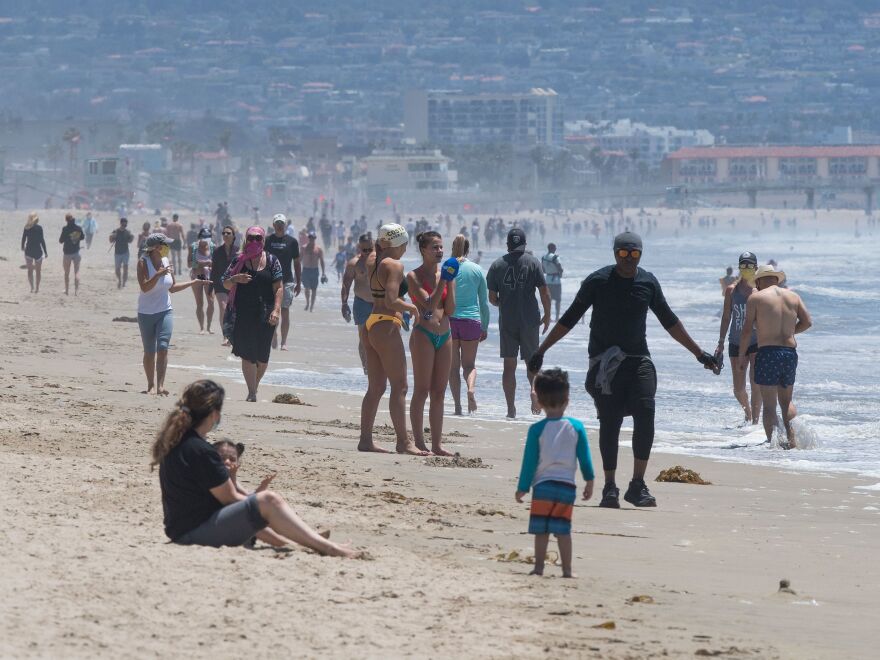Southern California passed a milestone on Wednesday: Los Angeles County reopened its beaches.
The move affects beaches along a stretch of coastline of several cities, although a number of limits remain in effect. Group sports won't be allowed; neither will picnicking or sunbathing. Parking lots, bike paths and boardwalks will likewise be off-limits.
Among the cities affected by the order is Manhattan Beach, whose mayor, Richard Montgomery, was at the beach by 6:30 a.m. Wednesday to see how many people showed up. "Luckily, there [were] no big crowds," he says.
The reopening — after six weeks of lockdown — is important, Montgomery says. "It's our culture," he adds. "Southern California here, the beach is where people go to not just recreate but just take a piece of mind off."
Still, he says he understands the fear some residents may have about opening up. "The risk of what we're doing has to be a balanced approach between open versus staying inside and staying at home," Montgomery tells NPR's Morning Edition.
Interview Highlights
Orange County, Calif., also in Southern California, opened its beaches last month if I'm not mistaken. And then the governor had to shut them down again because thousands of people packed the beaches. Why do you think your beach will end up different?
The difference here is they were impacted by everyone going to those beaches. Here, with 23 miles of coastline open, we won't be impacted like Orange County was. We're so spread out.
What other economic activities or social activities, for that matter, are now allowed and taking place in Manhattan Beach under these changes to the orders?
We're seeing two things happen really. Our department stores, retail stores can sell; they just have to deliver from the curbside. Our restaurants have always had the opportunity to do takeout only. We're seeing opening up things like our botanical gardens, our jewelry stores, our gift card places. Things where not huge crowds go to, we're starting to see resurgence. ... So, we're seeing small signs of recovery, but we're all waiting for that next step to come down. And maybe two weeks, three weeks, four weeks [before] the governor says, "OK, we've all done well. We've seen decline and the COVID-19 rates down. We're going to open up a little more." That's what we're all pressing for.
It's clear from listening to public health officials that there will be additional cases of COVID-19. ... That's a kind of a trade-off that seems to be inevitable until there's a vaccine. Are people in Manhattan Beach ready for that?
I think our residents are more than ready. We've had 71 cases reported. ... I personally know of 14 to 16 residents that have recovered that don't show in that number. And unfortunately, we had two deaths out of 35,000 residents. The numbers are low. I wish they were lower. But our residents understand the risk here. They want to be outside and active. ... I think six weeks is a lot to ask of people to stay in their home. ... We're an easygoing beach city, so to close our beaches and our strand walkway is a stark reminder to our public of just how serious the situation is for everyone.
Copyright 2021 NPR. To see more, visit https://www.npr.org.


